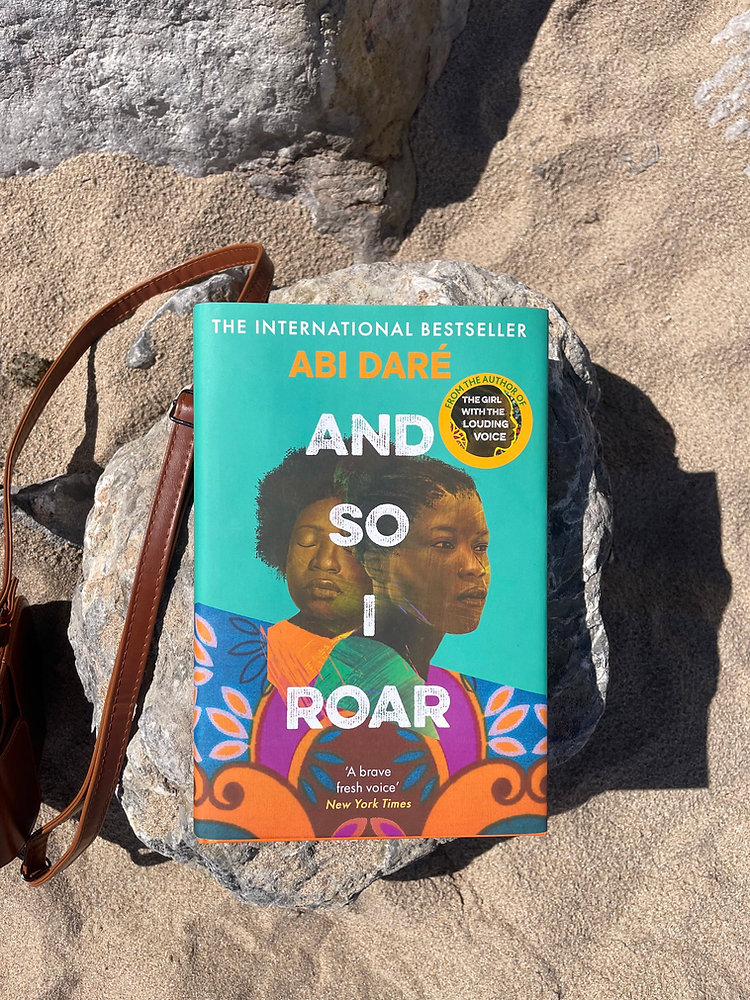Place your adverts here on InfoDig @ low rates; banner ads, sponsored links and guest articles etc. Contact us

The essence that grounds “And So I Roar“ is rooted in Adunni’s resilience. Being resilient is remarkable, yet damning when it overextends to undue hardship or injustice. Abi Dare invites us again into Adunni’s world, a girl who remains an irrepressible force in the face of tradition and adversity. She is now fourteen and excited to begin school in Lagos. However, her journey is disrupted when a call from her village, Ikati, pulls her back to confront her past, sparking a pivotal conflict in the story.
This conflict sears the fabric of the plot and leaves gaping destruction in its wake. What is meant to create a rift between Adunni and her guardian, Tia, becomes a tightening bond. Their relationship beautifully mirrors the fierce protectiveness seen in Amaka’s relationships with her girls in Easy Motion Tourist. Tia isn’t just a guardian; she’s a haven for Adunni, much like Amaka is for her girls. Their connection is grounded in love, with Tia’s wisdom guiding Adunni as she bravely navigates the challenges of her past while easing her into a future filled with possibilities.
This highlights what being genuinely invested in someone means. It’s a heartwarming reminder that when women come together, they can uplift and empower one another to find and assert their voices. Tia’s journey of self-discovery runs parallel to Adunni’s struggle for independence, creating a rich dynamic where both characters learn from and lean on each other. The fierce love and protectiveness Tia shows are not just about saving Adunni but about challenging the societal norms that constrain women’s freedom and futures—and, perhaps, about saving herself, too.
The return to Ikati village is a symbolic journey for Adunni. More than just a setting, Ikati represents the weight of tradition, a place where girls’ futures are often decided by others, not themselves. Adunni’s return to Ikati feels like a confrontation with the ghosts of her past, and her fight for freedom is not just personal—it becomes a battle for the liberation of the girls in her community. Ikati is both a reminder of what Adunni seeks to escape and the ground where her ultimate test of strength and courage plays out.
Adunni’s resilience is central to her character’s journey in the story but reflects a nuanced journey. Her life is marked by hardship, yet she remains determined to find her voice and claim a future beyond society’s limitations. Throughout the story, Adunni demonstrates resilience not just by enduring her struggles but by seeking ways to overcome them and grow. Adunni’s resilience is not passive endurance; it’s about actively pursuing change through education, standing up for herself, or advocating for others like her. Abi Dare doesn’t romanticise her resilience as something she should aspire to at all costs. Instead, she portrays it as a necessity born from an unjust system. Adunni is resilient because she must be to survive and thrive in a world that frequently denies her autonomy and opportunities.
Abi Dare’s storytelling is ensconced in themes of empowerment and transformation, and in “And So I Roar,” this is made manifest in the clash between tradition and change. As Adunni and Tia confront the forces that threaten to silence young women, the novel spotlights the radical change that could happen through solidarity and the courage to claim one’s voice. Zenab, a remarkably bright young girl, fiercely displays this courage. From the onset, she ensures her voice is heard loud and clear regardless of the restraints on her freedom. She fights, sometimes physically, for justice and her beliefs. Spending time with her and knowing her reminds Adunni that her roaring voice should be heard even beyond her reach.
Abi Dare masterfully combines these themes with the vibrant cultural backdrop of Ikati, making it a force in its own right. The descriptions of the villages and the human activities punctuating the day are filled with masterful intent to explore the soul of Ikati. We’re shown how beautiful the land is and how the beauty is fast fading due to illegal deforestation. Abi Dare takes on different themes in this narrative, but the most sensitive one is showing women that they are not the blight that society makes them to be. This sequel reminds readers of the importance of stories and, more importantly, of the voices that rise from places like Ikati to demand change and assert their right to be heard.








)





 English (US) ·
English (US) ·